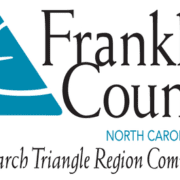Town Talk 04/06/20: NC811 Director Reminds Public to ‘Call Before You Dig’
THIS STORY IS PRESENTED IN PART BY DRAKE DENTISTRY
Louis Panzer, executive director of North Carolina 811, appeared on WIZS Town Talk Monday at 11 a.m.
Known for its “Call Before You Dig” slogan, NC811 has provided the public with a communications link between local utility providers since 1978.
With April being recognized as Safe Digging Month, Panzer said now is the perfect time to discuss the legal requirement of having utilities marked before digging.
Panzer explained that NC law requires anyone engaging in excavation or demolition activities to contact NC811 at least three working days prior to starting the work. NC811 will then notify the member facility owners within your area of excavation or demolition requests.
The member facility owner then has three working days to provide a response and to mark any underground facilities that may be in conflict with the work area. Only publicly owned lines will be marked by the facility owner; private lines will not be indicated.
NC811 services are provided to residents free of charge and are designed to protect both the safety of those digging as well as the integrity of the telecommunication and utility networks underground.
“So many people rely on services that we sometimes take for granted,” said Panzer. “Telecommunication has increasingly become important, especially during this time where more people are working from home. People are sheltered in place and their children are at home being educated online.”
With an average of five conflicting utilities around your home or business, Panzer said it is better to contact NC811 and ask questions before engaging in even commonplace outdoor projects such as gardening or planting shrubbery.
Steps in the 811 utility location process include:
- Call 811. Before calling, have information ready such as your address, property specifics, the area you wish to have located, any special considerations, etc. For a full listing of the required information, click here.
- Wait the required time. NC law requires that a three working day notice be given to the utility owners before you dig. Member facilities have three full working days, beginning the first working day after the notice is given, to mark the area requested for underground utilities or to notify the excavator of no conflict in the area.
- Check Positive Response. Positive Response is both a by-phone and online means for the utility members of NC811 to provide information regarding the status of your location request. Click here for more information.
- Respect the marks. The underground facilities located on your property will be identified by color-coded paint, stakes or flags and should not be disturbed.
- Dig with care. If damage occurs, notify the facility owner directly. You can also dial 811 to report damage to underground facilities. In the event of a gas release, remove yourself from the area immediately and call 911 to report.
For more information on NC811, call by simply dialing 8-1-1, download the 811 app or visit www.nc811.org.
To hear the interview with Panzer in its entirety, go to WIZS.com and click on Town Talk.














